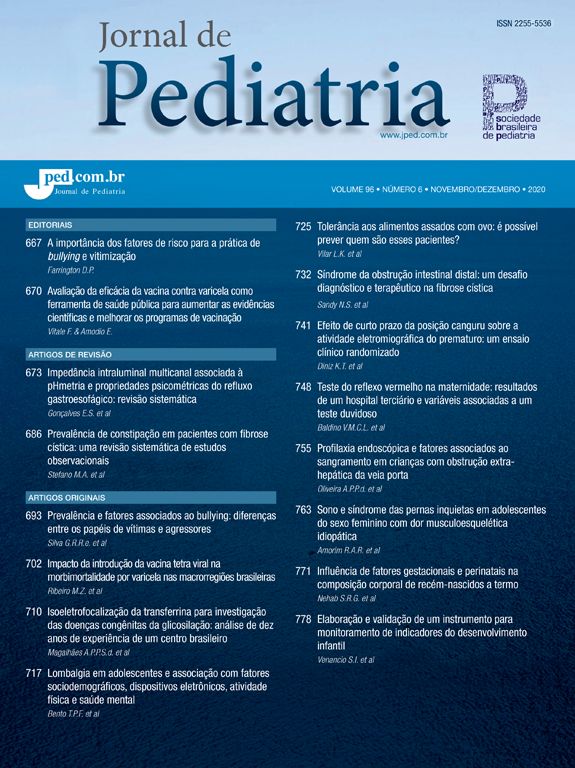To determine the influence of intrapartum antibiotic therapy on blood and secretion cultures of newborn infants suspected of early-onset sepsis.
Material and MethodsFrom August 1995 through July 1996, 69 sequential newborn infants with early-onset sepsis or septic syndrome were included in the study. All of them were followed for the end point: positivity of blood, urine, CSF, tracheal secretion or umbilical catheter cultures. The sample size was figured out to be 17 for each group, for a significant level of 5%.
ResultsSeventeen mothers were treated with antibiotic. Ampicillin alone or in association with other drugs was utilized in 70% of them. Urinary tract infection occurred in 9 mothers (53%), ammonites in 6, one mother had both and another one had erysipelas. Thirteen newborn infants had positive cultures in the group whose the mothers had not received antibiotic (n=52), none of the 17 newborn infants delivered by the mothers treated with antibiotic had any positive culture (p=0.0164). The relative risk of positive culture in a septic neonate if the mother is not treated with antibiotic is 12 times higher than if the mother is treated with antibiotic.
ConclusionThe use of intrapartum antibiotic in newborn infants with early-onset sepsis or septic syndrome may cause a negativity of cultural exams, increasing the difficulty of the diagnosis of early-onset neonatal sepsis.
Determinar a repercussão do uso de antibióticos pelas mães no resultado das hemoculturas e culturas de secreções dos recém-nascidos com suspeita clínica de infecção precoce.
Material e MétodosNo período de agosto de 1995 a julho de 1996, foram analisados 69 casos seqüenciais de recém-nascidos com sepse ou síndrome séptica precoce. Os recém-nascidos foram acompanhados para seus desfechos clínicos: crescimento ou não de germe em suas culturas de secreções (sangue, urina, líquor, secreção traqueal ou cateter umbilical). O tamanho mínimo de amostra calculado foi 17 para cada grupo, considerando um nível de significância de 5%.
ResultadosEm 17 foi constatado uso de antibiótico previamente ao parto, sendo ampicilina isoladamente ou em associação com gentamicina a opção em 70% das mães. Infecção urinária materna ocorreu em 9 casos (53%), amnionite em 6 casos, em 1 caso observou-se associação de ambos e noutro caso a mãe tinha erisipela. No grupo de mães que não receberam antibiótico (n=52), houve 13 recém-nascidos com culturas positivas; nas 17 mães em tratamento antimicrobiano, nenhum recém-nascido teve culturas positivas (p=0,0164) . O risco relativo de ter cultura positiva se a mãe não tomar antibiótico é 12 vezes maior do que se a mãe tiver recebido antibiótico.
ConclusãoO uso de antibióticos antes do parto de recém-nascidos com sepse ou síndrome séptica pode fazer com que as hemoculturas resultem negativas, aumentando a dificuldade diagnosis of earlyonset neonatal sepsis.










